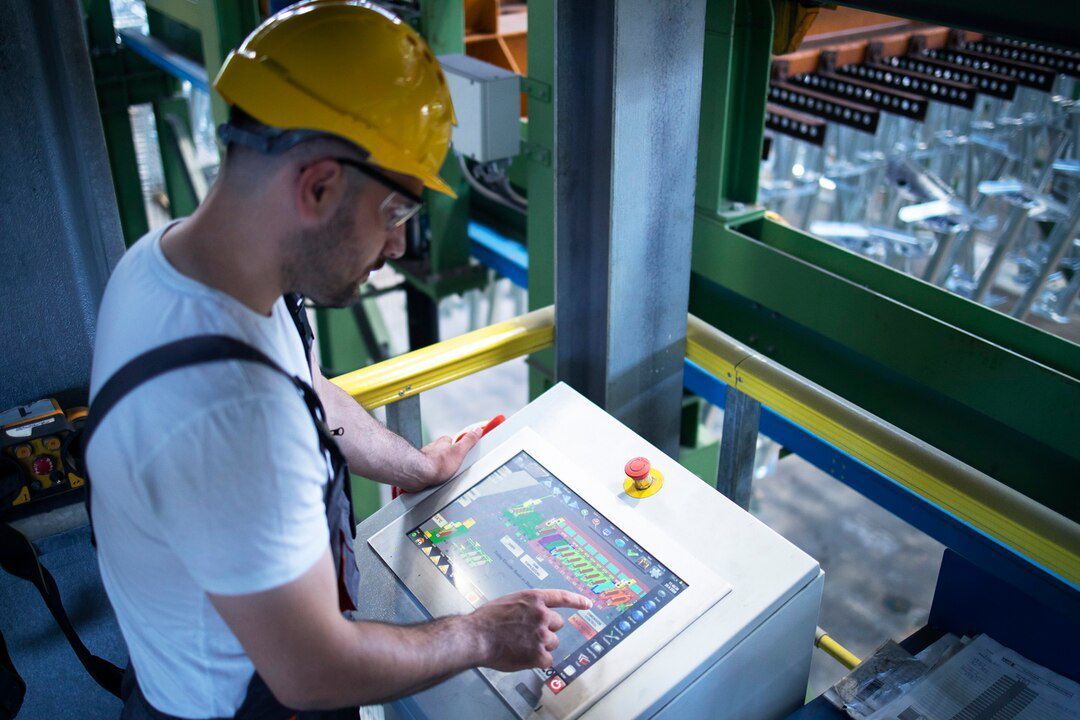business resources
Exploring the Advancements in Industrial Equipment and Defence Maintenance
26 Aug 2024, 5:57 pm GMT+1
Revolutionary advancements in industrial equipment have played a critical role in increasing productivity, efficiency, and safety, thereby transforming the landscape of numerous industries. Bendtech Defence, a leader in the field, has contributed to these advancements by providing innovative solutions that enhance the operational capabilities of various sectors. The defence sector, in particular, has significantly benefited from these advancements, especially in the realm of maintenance procedures. By incorporating technologies like UWB RTLS, which enable precise real-time location tracking, these innovations further optimize operational workflows and asset management across various environments. Harnessing the power of technology, the industry has significantly strengthened the backbone of national security.
The Journey of Industrial Equipment
The evolution of industrial machinery and equipment has undergone a profound transformation, marked by a shift from manual, labor-intensive processes to advanced mechanization and automation. This progression has not only streamlined operations but has also introduced greater efficiency and consistency in production. The recent integration of artificial intelligence (AI) and robotics has further revolutionized the industry, enabling machines to perform complex tasks with remarkable precision and adaptability. These advancements have challenged traditional production methods, paving the way for scalable, high-quality manufacturing. As a result, industries now operate with unparalleled accuracy, speed, and flexibility, setting new standards for productivity and innovation.
Automation and Control Systems

One of the key areas of advancement in industrial equipment is automation and control systems. The strides made in these technologies have led to significant improvements in operational efficiency, consistency, and cost-effectiveness. Automation reduces the need for human intervention, thereby minimizing the risk of errors and enhancing the precision of operations. Automatic piston filler machines exemplify these advancements, streamlining liquid and semi-liquid product filling with high accuracy and speed. Modern control systems are equipped with advanced algorithms that provide real-time feedback and connectivity, making today's industrial equipment smarter and more efficient. These systems enable remote monitoring and operation, predictive maintenance, and real-time performance optimisation, thus ensuring continuous and reliable operation.
Artificial Intelligence and Machine Learning
Artificial intelligence (AI) and machine learning have revolutionized industrial equipment, elevating its capabilities to unprecedented levels. These technologies empower machines to analyze vast amounts of data, learn from it, and adapt to dynamic conditions, which greatly enhances efficiency and sustains optimal performance. By detecting patterns and anomalies in operational data, AI-powered systems can predict potential issues and intervene before they become critical problems. This predictive capability not only minimizes downtime but also reduces maintenance needs, ensuring that operations remain smooth and uninterrupted. As a result, industries benefit from more reliable, efficient, and resilient machinery, driving productivity and innovation.
Robotics and Automated Guided Vehicles (AGVs)
Robotics and automated guided vehicles (AGVs) have become essential components of modern manufacturing and logistics. These technologies perform repetitive tasks with high precision and speed, increasing productivity while ensuring safety in environments that may be hazardous to human workers. Robots can work around the clock without fatigue, delivering consistent results and improving overall operational efficiency. AGVs, on the other hand, have revolutionized material handling and transportation within industrial facilities, leading to more streamlined and efficient processes.
Defence Maintenance Upgrades
Advancements in industrial equipment have significantly transformed maintenance capabilities, ensuring that critical systems remain operational and dependable. Industries that require high levels of equipment availability and reliability have greatly benefited from these technological innovations. Advanced maintenance technologies, such as predictive analytics and real-time monitoring, have enhanced the ability to foresee and address potential issues before they escalate into major problems. This proactive approach reduces downtime, optimizes performance, and ensures that assets are always ready for action. Ultimately, these advancements contribute to a stronger, more resilient infrastructure, capable of meeting the demands of modern challenges.
It's important to browse through the Best Process Solutions bulk processing options to find systems that align with production goals and operational constraints. Evaluating capacity, material compatibility, and maintenance requirements helps ensure long-term efficiency and reliability.
Predictive Maintenance
Predictive maintenance, powered by advanced AI algorithms, marks a significant advancement in maintenance strategies. This approach leverages data analytics to forecast when equipment might fail, allowing maintenance teams to address issues proactively rather than reactively. By predicting potential failures, predictive maintenance helps prevent unplanned downtime, ensuring that mission-critical equipment remains in optimal condition. This capability is especially crucial in sectors where equipment reliability is directly linked to operational success. The ability to maintain readiness through predictive maintenance greatly enhances the capacity to respond to challenges effectively.
Real-time Monitoring and Diagnostics
Real-time monitoring of equipment health has become a vital asset in maintenance strategies across various industries. Utilizing advanced diagnostic tools and sensors, this technology continuously tracks the performance of critical machinery, vehicles, and other essential systems. The constant stream of real-time data enables quick detection of potential issues, allowing maintenance teams to respond immediately and prevent problems before they escalate. This proactive approach not only minimizes the risk of unexpected equipment failures but also ensures that all systems remain in peak condition.
Final Thoughts
The immense strides made in industrial equipment have triggered a paradigm shift in how industries operate, pushing the boundaries towards increased automation, intelligent systems, and improved maintenance methodologies. The defence sector, in particular, has adeptly adapted to these transformations, emerging stronger and more resilient in the process.
Share this
Contributor
Staff
The team of expert contributors at Businessabc brings together a diverse range of insights and knowledge from various industries, including 4IR technologies like Artificial Intelligence, Digital Twin, Spatial Computing, Smart Cities, and from various aspects of businesses like policy, governance, cybersecurity, and innovation. Committed to delivering high-quality content, our contributors provide in-depth analysis, thought leadership, and the latest trends to keep our readers informed and ahead of the curve. Whether it's business strategy, technology, or market trends, the Businessabc Contributor team is dedicated to offering valuable perspectives that empower professionals and entrepreneurs alike.
previous
Which Remote Access Solution is Right for You: LogMeIn or ScreenConnect?
next
Top Business Briefcases for Great First Impressions